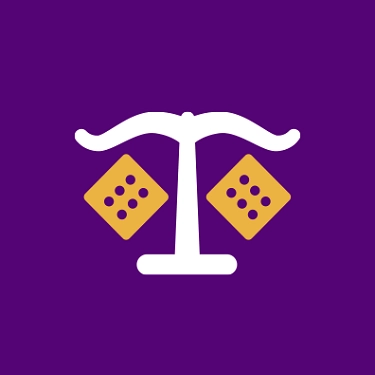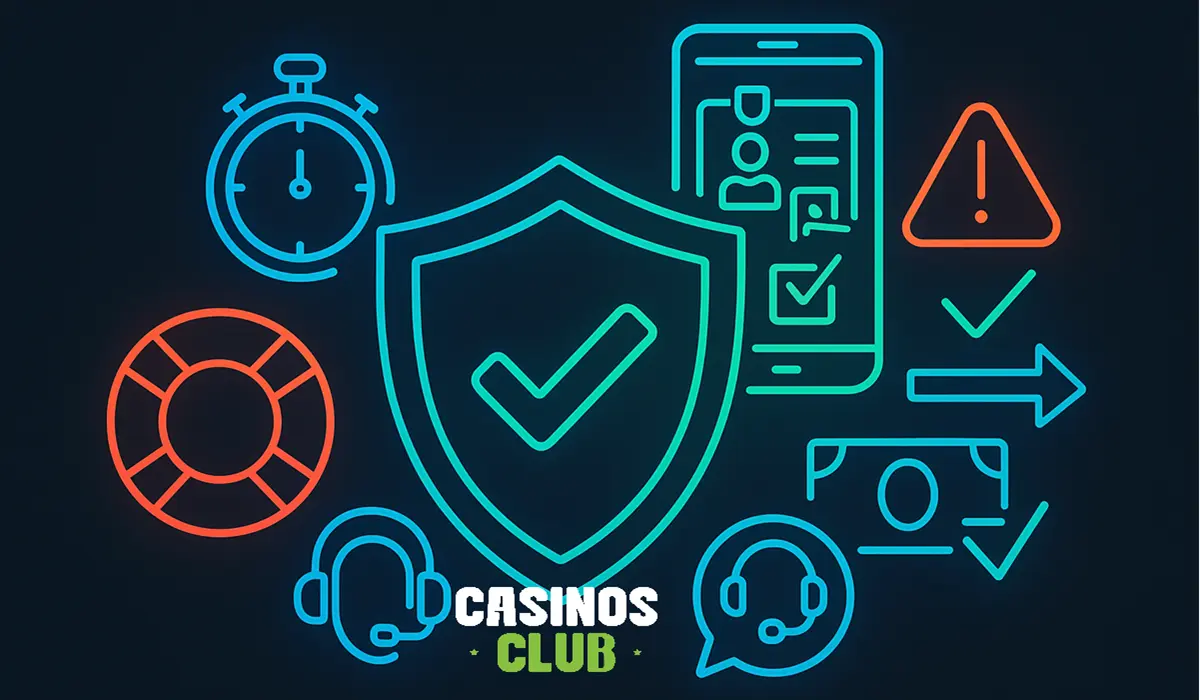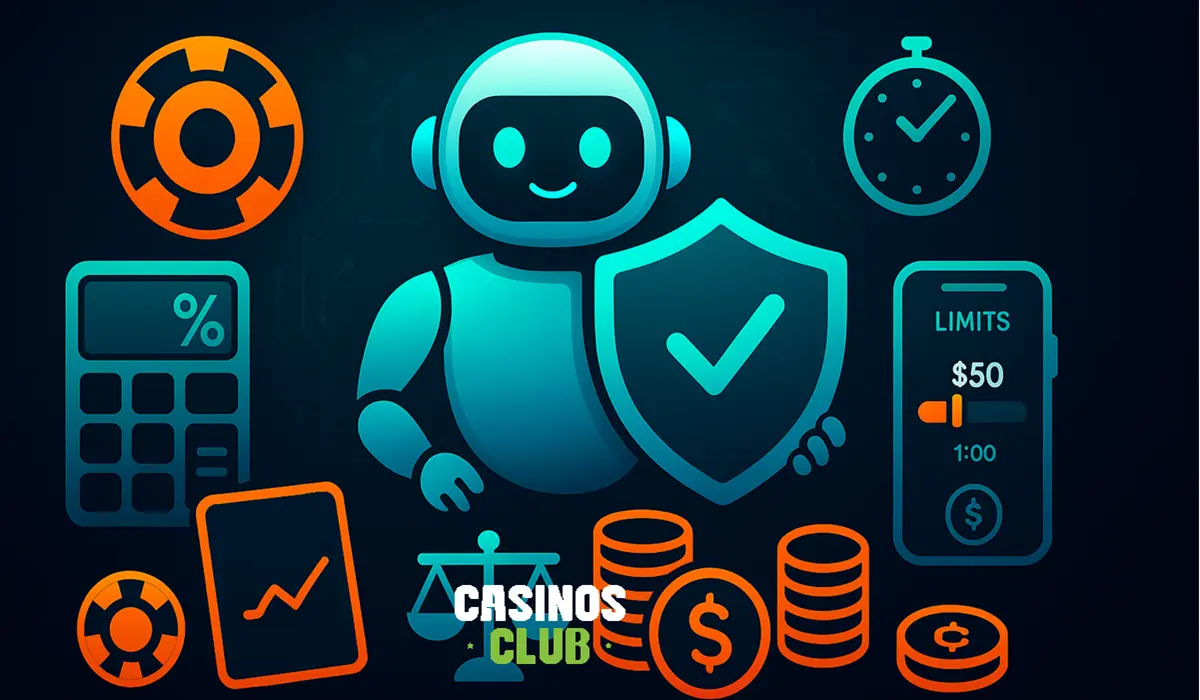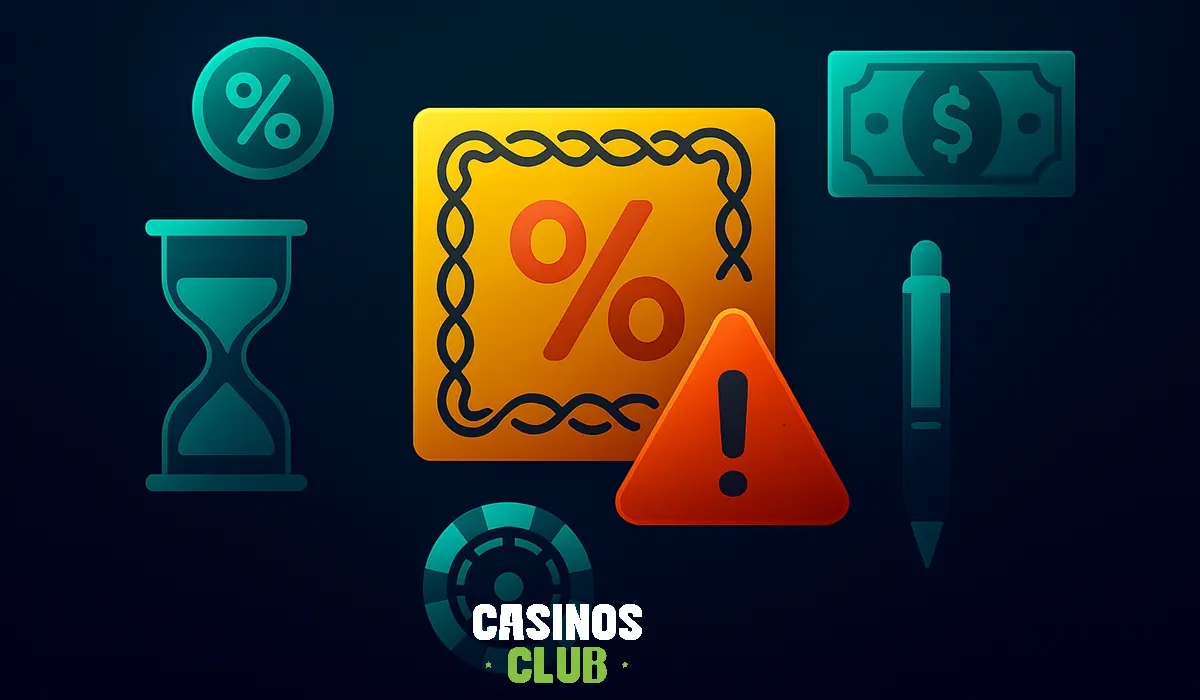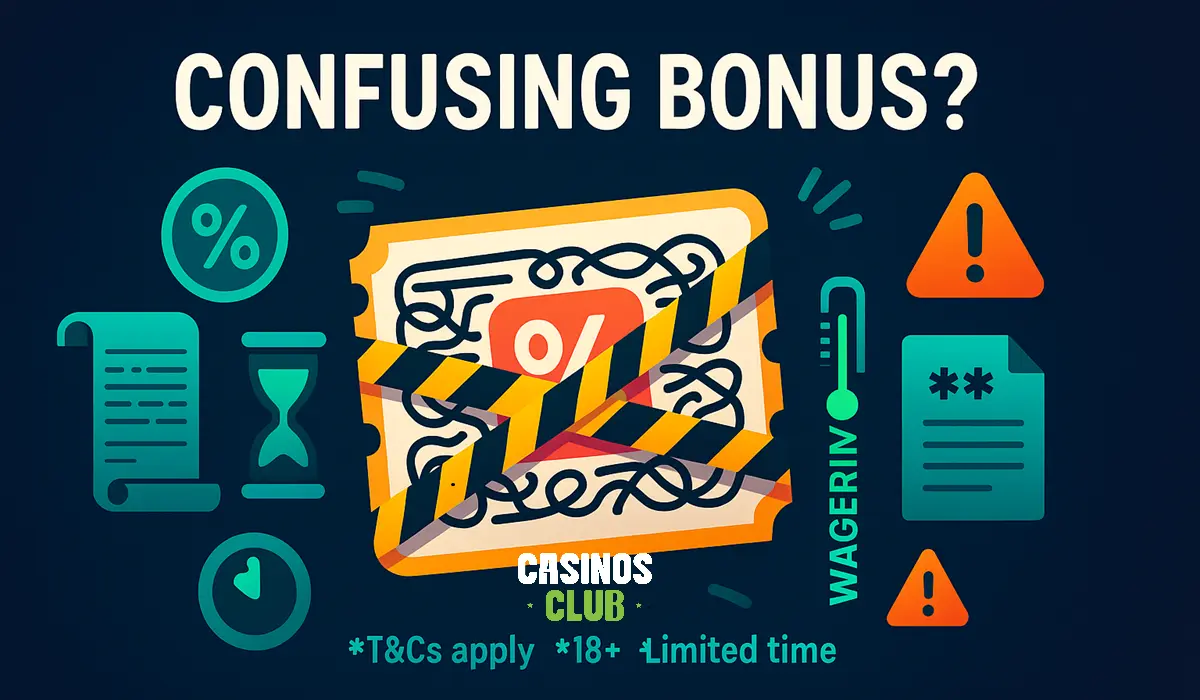
30 December 2024
Mastering Poker: How do You Play Poker?
Poker isn't just a game; it's a thrilling challenge of skill, strategy, and a bit of luck. Whether you're learning how to play poker for beginners or trying to master advanced poker strategies, this guide will help you become a better player win more consistently. From poker basics to pro-level tips, let's dive in!
How to Play Poker Cards: Poker Basics for Beginners
Poker might seem intimidating at first, but mastering the poker basics will help you feel confident and ready to play. This section will cover the essentials for anyone learning how to play poker cards, step by step.
The Objective: Winning the Pot
In poker, the goal is simple: win the pot, which is the total amount of money or chips bet during the hand. You can win in two ways:
-
Have the best hand at the showdown.
-
Make all other players fold by convincing them your hand is unbeatable.
Poker Hand Rankings: Know Your Cards
Before diving into games like poker texas holdem, familiarize yourself with hand rankings. Here's the hierarchy, from strongest to weakest:
-
Royal Flush: A, K, Q, J, 10 of the same suit.
-
Straight Flush: Five consecutive cards of the same suit.
-
Four of a Kind: Four cards of the same rank.
-
Full House: Three of a kind plus a pair.
-
Flush: Five cards of the same suit, not in sequence.
-
Straight: Five cards in sequence, any suit.
-
Three of a Kind: Three cards of the same rank.
-
Two Pair: Two different pairs.
-
One Pair: Two cards of the same rank.
-
High Card: When no one has any of the above, the highest card wins.
Memorizing these rankings is crucial when learning how to play poker for beginners.
The Game Setup: Poker Table Basics
To start playing, you'll need:
-
A deck of 52 cards.
-
Poker chips or another betting currency.
-
2-10 players.
Each player is dealt two private cards, called "hole cards," which they combine with five community cards on the table to create the best possible hand. In texas hold em game, there are four key rounds: pre-flop, flop, turn, and river.
How to Play Poker Game Rounds
-
Pre-Flop: After players get their hole cards, they decide to bet, call, raise, or fold based on their hand strength.
-
Flop: The dealer reveals three community cards. Players reassess their hands and bet again.
-
Turn: A fourth community card is revealed. The stakes often increase here.
-
River: The final community card is revealed. Players make their last bets before the showdown.
Knowing the flow of the game is fundamental to understanding how to play poker texas holdem effectively.
Starting Strong: Beginner Poker Tips
-
Stick to Strong Hands: Play high pairs like Aces or Kings, and fold weaker hands early.
-
Observe Other Players: Watch how others bet to spot patterns.
-
Practice Poker Online: Platforms offering texas holdem free games are great for beginners.
Texas Hold'em Game: How to Play Texas Holdem

If you're exploring how to play poker texas holdem, you're diving into the world's most popular and exciting poker variation. In this section, we'll break down the rules, rounds, and essential texas holdem tips to get you started.
The Basics of Texas Hold'em Poker
Texas Hold'em is a game of skill, strategy, and a touch of luck. Here's a quick summary of how it works:
-
The Deal: Each player gets two hole cards dealt face down.
-
The Community Cards: Five cards are dealt face up in the center of the table across three stages: the flop (3 cards), the turn (1 card), and the river (1 card).
-
Your Goal: Make the best five-card hand using any combination of your hole cards and the community cards.
If you're wondering how to make decisions at each stage, remember that poker basics apply: assess your hand, the board, and your opponents' actions.
The Four Betting Rounds
To fully grasp how to play poker game like Texas Hold'em, it's essential to understand the four betting rounds:
-
Pre-Flop:
-
Players assess their two hole cards.
-
Decisions: Fold, call (match the current bet), or raise (increase the bet).
-
Tip: Starting hand selection is critical. Strong hands like pocket Aces or Kings are ideal for aggressive play.
-
-
The Flop:
-
The first three community cards are revealed.
-
This is where you begin to see potential combinations, like pairs, straights, or flushes.
-
Tip: Play cautiously if the flop doesn't improve your hand.
-
-
The Turn:
-
A fourth community card is added.
-
Tip: With only one card left to come, consider the likelihood of completing your hand versus the pot odds.
-
-
The River:
-
The fifth and final community card is dealt.
-
Tip: This is the last chance to bet. Be strategic and confident in your hand or your bluff.
-
Texas Hold'em Strategies
Mastering poker strategies for Texas Hold'em requires focus and adaptability. Here are some key texas holdem strategy tips:
-
Positional Awareness:
-
Your position at the table impacts your decisions.
-
Early positions act first, so play conservatively. In late positions, you can be more aggressive.
-
Reading the Board:
-
Look for potential hands your opponents might have. For instance, if the board shows three hearts, someone might have a flush.
-
Bluffing Smartly:
-
Bluff only when the situation demands it. Overuse can make your bluffs predictable.
Tips for Beginners: Play Texas Holdem with Confidence
-
Start with free games or low-stakes matches to build confidence.
-
Use poker tutorial videos to learn how to handle real-game situations.
-
Practice your skills with texas hold'em poker online platforms.
Common Beginner Mistakes to Avoid
-
Playing Too Many Hands: Stick to strong starting hands and fold weak ones.
-
Ignoring Table Position: Acting without considering your seat can lead to costly mistakes.
-
Over-Betting: Keep your bets consistent and strategic.
By following these poker tips for beginners, you'll not only learn how to play texas hold'em poker, but you'll also gain a solid foundation to grow your skills.
Reading Opponents and Betting Smart: Poker Tactics
One of the most critical aspects of becoming a better player in poker is learning how to read your opponents and make strategic bets. In this section, we'll explore poker strategies that involve observing opponents and refining your betting approach. Whether you're learning how to play poker for dummies or trying to master advanced poker tactics, these insights will elevate your game.
Reading Opponents: The Art of Observation
Being able to "read" your opponents is one of the most valuable skills in poker. Here's how you can develop this ability:
-
Identify Player Types:
-
Tight Players: They only play strong hands. If they're betting big, they likely have a good hand.
-
Loose Players: They play many hands and are more unpredictable.
-
Aggressive Players: They raise frequently and force others to make tough decisions.
-
Passive Players: They rarely raise and tend to call, even with weaker hands.
-
-
Recognizing these traits helps you predict their moves and adjust your poker strategies accordingly.
-
Watch for Betting Patterns:
-
Consistent betting sizes often indicate confidence in their hand.
-
Sudden changes in behavior (e.g., a passive player suddenly betting aggressively) might signal a bluff.
-
-
Spot Tells:
-
Physical Tells: Fidgeting, avoiding eye contact, or shaky hands can reveal nerves.
-
Online Tells: Quick bets might mean confidence, while long pauses could indicate uncertainty.
-
Mastering these observational skills will give you an edge, whether you're playing poker holdem or any other variation.
Smart Betting: Maximizing Value and Minimizing Losses
Betting is not just about the cards you hold - it's a strategy in itself. Here are some poker tips to refine your betting approach:
-
Value Betting:
-
When you have a strong hand, bet to extract maximum value from your opponents.
-
Example: In a texas holdem game, if you're holding a high pair and the board looks safe (no straights or flushes), bet enough to keep weaker hands in the pot.
-
-
Bluffing Wisely:
-
Bluffing can force opponents to fold better hands, but it must be done sparingly.
-
Look for situations where the board supports your bluff. For instance, if the board shows four cards of the same suit, a confident bet could suggest you have the flush.
-
-
Adjust Bet Sizing:
-
Small bets can lure opponents into the pot.
-
Large bets can force folds or protect a vulnerable hand.
-
-
Continuation Betting (C-Bet):
-
After raising pre-flop, make a small bet on the flop, even if it doesn't improve your hand. This maintains pressure on your opponents and keeps you in control of the hand.
-
Making Informed Decisions with Pot Odds
Understanding pot odds is key to making smart bets:
-
What Are Pot Odds?
-
Pot odds compare the size of the pot to the bet you must call. If the pot is $100 and the bet is $25, the pot odds are 4:1.
-
Why Do They Matter?
-
If the odds of improving your hand are better than the pot odds, it's worth calling the bet.
For example, if you're on a flush draw in a texas hold'em poker online game and need one more card to complete your flush, calculate whether the potential payout is worth the risk.
Blending Tactics with Observation
Combining smart betting with the ability to read opponents can help you:
-
Spot when someone is bluffing.
-
Recognize when to fold early to avoid costly mistakes.
-
Decide when to play aggressively and when to hold back.
Bankroll Management: For Long-Term Poker Success
No matter how skilled you are, playing poker without managing your bankroll is like driving without brakes - it's risky and often leads to disaster. In this section, we'll explore the importance of bankroll management and how it ensures you can keep playing, learning, and improving your poker strategies over time.
What Is Bankroll Management?
Bankroll management is the process of setting limits on how much money you use for poker, ensuring you never risk more than you can afford to lose. Whether you're playing casual games or competing in serious texas holdem games, managing your bankroll is essential to becoming a better player win consistently.
Why It Matters
-
Prevents Tilt:
-
Losing big in one game can trigger "tilt," where emotions overtake strategy. Proper bankroll management keeps losses manageable, so you stay focused and level-headed.
-
-
Allows for Variance:
-
Even the best players face losing streaks. Having a proper bankroll cushions these downturns, allowing you to recover when luck returns.
-
-
Supports Long-Term Growth:
-
Consistently following bankroll rules ensures you always have funds to play, practice, and improve.
-
Setting Your Poker Budget
Here's a step-by-step poker guide to building your bankroll plan:
-
Start with an Amount You Can Afford:
-
Treat your poker bankroll as separate from your daily expenses. Never play with money you can't afford to lose.
-
-
Define Your Limits:
-
For cash games, use 20-30 buy-ins for your stake level. For example, if you're playing $1/$2 blinds, aim for a $4,000 to $6,000 bankroll.
-
For tournaments, have at least 50 buy-ins. This ensures you can handle variance in high-risk situations.
-
-
Stick to Your Limits:
-
If you lose a set percentage of your bankroll (e.g., 10%), take a break and reassess your strategy.
-
Bankroll Management for Online Poker
Managing your money while playing texas hold'em poker online has its own challenges. Follow these tips:
-
Use tools or apps to track your wins and losses.
-
Start with free or low-stakes games like texas holdem free to build confidence and a cushion.
-
Avoid chasing losses. Stick to your predetermined limits, even in online games where it's easy to keep clicking "rebuy."
Tips to Avoid Common Bankroll Mistakes
-
Don't Play Above Your Limits:
-
It's tempting to jump to higher stakes, but that increases your risk of losing your bankroll quickly.
-
-
Avoid "All-In" Temptations:
-
Even if you feel confident, never risk your entire bankroll on one hand or game.
-
-
Plan for Variance:
-
Variance (the ups and downs of poker) is part of the game. A solid bankroll ensures you can survive the lows.
-
Practicing Bankroll Discipline
To truly master how to win poker, discipline is key. Set strict rules for yourself and stick to them, no matter how tempting it may be to bend them during an exciting game.
Bankroll Management in Action
Imagine you're playing a poker texas holdem tournament with a $10 buy-in. You've set aside $500 for your poker bankroll. Here's how to apply good management:
-
Limit yourself to a maximum of 5% of your bankroll per tournament. In this case, that's $25 (or two $10 buy-ins).
-
If you lose two tournaments in a row, stop for the day and evaluate your strategy before trying again.
Advanced Poker Tactics
Once you've mastered the fundamentals and developed a solid understanding of how to play poker game, it's time to dive into advanced tactics. These strategies will help you outthink your opponents, control the game, and take your skills to the next level.
Mastering Bluffing: When and How to Bluff
Bluffing is one of the most exciting and challenging aspects of poker. It's about convincing your opponents you have a better hand than you actually do. Here's how to do it effectively:
-
Timing is Everything:
-
Bluff in situations where your opponents are likely to fold.
-
Example: If the board shows three high cards of the same suit, a strong bet can make it seem like you have the flush.
-
-
Bluff Against the Right Players:
-
Avoid bluffing loose players - they're more likely to call you.
-
Target tight players who fold to pressure.
-
-
Keep Your Story Consistent:
-
Your betting pattern should align with the hand you're representing.
-
If you're acting like you have a strong hand, avoid sudden hesitations or inconsistent bets.
-
Bluffing is a skill that takes time to perfect. Practice in texas holdem free games or with friends before trying it in high-stakes situations.
Semi-Bluffing: The Smart Bluff
A semi-bluff is when you bet with a hand that isn't strong yet but has the potential to improve. For instance:
-
You have four cards to a straight or a flush.
-
Betting here applies pressure on your opponents while giving you a chance to hit your draw.
Semi-bluffing is a powerful tactic that combines offense and defense, especially in texas hold em game situations.
Slow Playing: Hiding Your Strength
Slow playing involves underplaying a strong hand to lure your opponents into a false sense of security. Here's how to do it:
-
When to Slow Play:
-
You hold a monster hand (e.g., a full house or four of a kind).
-
The board doesn't pose significant threats (e.g., no flush or straight draws).
-
-
How to Slow Play:
-
Check or call instead of raising early on to keep more players in the pot.
-
Bet aggressively on later streets to maximize value.
-
Slow playing works best against aggressive players who are likely to bet big.
Positional Power: Leveraging Your Seat
In poker, where you sit matters. Your position relative to the dealer button impacts your strategy:
-
Early Position:
-
Act first after the flop. Play cautiously and stick to strong hands.
-
-
Middle Position:
-
Balance caution and aggression. Open your range slightly to include hands like suited connectors.
-
-
Late Position (Dealer/Button):
-
The most advantageous spot. You act last, allowing you to see what everyone else does. Play aggressively here.
-
Mastering positional play is crucial for implementing advanced poker strategies and dominating poker holdem games.
Exploiting Opponent Weaknesses
Advanced players look for cracks in their opponents' strategies. Here's how you can do the same:
-
Spot Overly Aggressive Players:
-
Let them bet big and then trap them with a strong hand.
-
-
Identify Weak Tight Players:
-
Steal blinds and pots with calculated aggression.
-
-
Counter Bluffers:
-
Call bluffs more frequently against players who bluff too often.
-
Balancing Aggression and Caution
Poker is about knowing when to push forward and when to hold back. To succeed:
-
Be Unpredictable: Avoid sticking to a single playstyle. Alternate between aggressive and cautious approaches to keep opponents guessing.
-
Stay Disciplined: Don't let emotion dictate your moves. Stick to your poker tactics and calculated plays.
Advanced Online Poker Tips
When playing texas hold'em poker online, apply these advanced tactics:
-
Use HUDs (Heads-Up Displays) to track opponent statistics.
-
Pay attention to timing tells, like how quickly players bet or fold.
-
Multitable wisely: Focus on quality over quantity to maintain optimal play.
The Mental Game: How to Stay Focused and Win at Poker

Poker isn't just a battle of cards - it's a mental game that tests your focus, discipline, and emotional control. Whether you're playing poker texas holdem with friends or competing in an online tournament, maintaining a strong mental game is essential to becoming a better player win more consistently.
The Importance of Mindset in Poker
Your mindset influences every decision you make at the table. A calm, focused player is more likely to spot opportunities and avoid costly mistakes. Here's why the mental game matters:
-
Focus: Staying sharp helps you pick up on opponents' patterns and tells.
-
Discipline: Knowing when to fold, even with decent cards, prevents unnecessary losses.
-
Resilience: Poker is a game of variance; handling losses without frustration is key to long-term success.
Avoiding Tilt: Staying Cool Under Pressure
Tilt is what happens when emotions override logic, leading to reckless decisions. Here's how to avoid it:
-
Recognize the Signs:
-
Feeling frustrated or impatient.
-
Making impulsive bets or bluffs.
-
-
Take a Break:
-
Step away from the table if you feel emotions rising. Even a few minutes can help.
-
-
Stick to Your Plan:
-
Follow your poker strategies no matter what. Trusting your strategy keeps you grounded.
-
Practicing poker tactics regularly and reflecting on your gameplay can also reduce tilt triggers.
Building Focus and Concentration
Poker requires mental stamina. Here are tips to stay focused during games:
-
Limit Distractions:
-
For texas hold'em poker online, turn off notifications and play in a quiet environment.
-
-
Practice Mindfulness:
-
Techniques like deep breathing or meditation can improve your ability to stay present.
-
-
Set Clear Goals:
-
Define objectives for each session, such as improving your poker moves or learning how to better read opponents.
-
Handling Losses: Learning from Every Hand
Losing is part of the game, but it's also a valuable learning opportunity. Here's how to deal with losses productively:
-
Review Your Hands:
-
Use hand histories or replays from texas hold'em poker online to analyze your decisions.
-
-
Ask for Feedback:
-
Discuss tricky hands with friends or online communities to gain new perspectives.
-
-
Keep Perspective:
-
One loss doesn't define your abilities. Focus on long-term improvement.
-
Confidence Without Overconfidence
Confidence is crucial, but overconfidence can lead to risky decisions. Here's how to strike the right balance:
-
Celebrate Small Wins:
-
Acknowledge your progress, whether it's mastering a basic poker strategy or successfully bluffing.
-
-
Stay Humble:
-
Even the best players lose. Recognize that there's always more to learn.
-
-
Focus on the Process:
-
Winning isn't just about the outcome - it's about making smart decisions consistently.
-
Mental Strategies for Online Poker
Playing texas hold'em poker online comes with unique mental challenges, such as the fast pace and lack of physical tells. Here's how to stay sharp:
-
Stick to a Time Limit:
-
Avoid fatigue by capping your sessions.
-
-
Avoid Multitasking:
-
Focus solely on the game to make better decisions.
-
-
Play to Learn:
-
Use online games to experiment with new poker strategies and refine your skills.
-
Maintaining Emotional Control
Poker can bring out a wide range of emotions, from excitement to frustration. To maintain control:
-
Develop a Routine:
-
Create habits that help you stay calm, like reviewing your goals before each session.
-
Separate Emotions from Decisions:
-
Base your moves on logic, not how you feel in the moment.
The Long Game: Building Mental Toughness
Building a strong mental game takes time, but the payoff is worth it. Here's how to continue improving:
-
Practice Regularly: Repetition builds confidence and familiarity.
-
Reflect After Each Game: Identify what went well and what didn't.
-
Stay Curious: Explore resources like poker tutorials, books, and forums to keep learning.
A strong mental game is what separates good players from great ones. By staying focused, disciplined, and emotionally balanced, you'll not only master how to play poker game but also enjoy the journey toward becoming a skilled player.
Your Journey to Poker Mastery
Congratulations! You've now explored a comprehensive guide on how to play poker and develop winning strategies. Whether you're learning the poker basics or mastering advanced poker tactics, you've taken a big step toward becoming a skilled player.
Takeaways from This Guide
-
Master the Basics:
-
Understand the rules of how to play poker for beginners, including hand rankings, game flow, and positional play.
-
Learn the fundamentals of how to play texas hold'em poker, the world's most popular poker variation.
-
-
Develop a Strategy:
-
Use a mix of calculated aggression, disciplined decision-making, and observation of opponents to stay ahead.
-
Apply texas holdem tips like positional awareness and smart bluffing to outplay your competitors.
-
-
Stay Mentally Strong:
-
Poker is as much a mental game as it is a card game. Avoid tilt, focus on long-term improvement, and practice mindfulness to maintain your edge.
-
-
Manage Your Bankroll:
-
Properly managing your funds ensures you can enjoy poker responsibly while weathering the ups and downs of the game.
-
-
Practice and Learn Continuously:
-
Whether through poker tutorials, free games, or texas hold'em poker online, regular practice is key to improvement.
-
Use every hand as an opportunity to learn and refine your skills.
-
Next Steps: Putting It All Into Action
-
Start Small:
-
Play low-stakes games or practice with friends to build confidence in your gameplay.
-
Try out texas holdem free games online to experiment with your strategies.
-
-
Set Goals:
-
Define clear objectives, such as mastering one aspect of basic poker strategy each week.
-
-
Stay Curious:
-
Continue exploring resources like books, online courses, and poker tutorials to expand your knowledge.
-
-
Join the Community:
-
Engage with other players through forums or local poker clubs. Discussing hands and strategies can provide valuable insights.
-
Get the Chips!
Remember, poker is a journey of constant growth. The more you play, the more you'll understand the intricacies of the game. Dominate in a texas hold'em game or just enjoy a casual night with friends, these strategies will serve you well.
With patience, discipline, and a passion for learning, you'll soon find yourself not just playing poker - but mastering it. So grab your chips, shuffle up, and deal. Your poker adventure awaits!
Top 10 Online Casinos for Poker Play
Online poker has surged in popularity, allowing players to play from anywhere while offering exciting tournaments, diverse cash games, and generous casino bonuses. Here is our list of the top 10 online casinos for poker play, known for their reliability, game variety, and user-friendly platforms.
1. PokerStars
PokerStars is the undisputed leader in the online poker world. It offers the largest player base, diverse game options, and prestigious tournaments like the World Championship of Online Poker (WCOOP). Its intuitive software and mobile app provide a seamless experience.
-
Highlights: Wide variety of games, massive tournaments, and top-tier security.
-
Best For: Both beginners and seasoned players.
2. 888poker
888poker is known for its beginner-friendly platform and frequent promotions. It provides a variety of game types, including Texas Hold'em, Omaha, and Stud, along with low-stakes tables for newcomers.
-
Highlights: Beginner tutorials, soft competition, and excellent bonuses.
-
Best For: New players looking to learn and compete.
3. GGPoker
GGPoker has rapidly gained popularity, especially with its partnership with the World Series of Poker (WSOP). It features unique tools like built-in hand analysis and tournament staking.
-
Highlights: WSOP events, cutting-edge features, and recreational-friendly environment.
-
Best For: Tournament enthusiasts and pros.
4. Partypoker
One of the oldest names in online poker, partypoker, continues to attract players with its excellent software, regular promotions, and live tournament satellites.
-
Highlights: Frequent promotions, strong loyalty programs, and live tournament qualifiers.
-
Best For: Players looking for loyalty rewards.
5. BetOnline Poker
BetOnline Poker is favored for its player-friendly bonuses, anonymous tables, and consistent traffic. It offers several tournament options, including guaranteed prize pools.
-
Highlights: Anonymous tables, cryptocurrency support, and mobile compatibility.
-
Best For: Crypto users and mid-stakes players.
6. Americas Cardroom
Americas Cardroom caters to U.S. players, offering regular tournaments, including high-stakes options. The platform also accepts cryptocurrency, making it a favorite among modern players.
-
Highlights: High-stakes games, crypto support, and soft fields.
-
Best For: U.S.-based players.
7. Bovada Poker
Bovada is a reputable platform offering anonymous tables, making it harder for experienced players to track opponents. Its mobile-friendly interface enhances the overall experience.
-
Highlights: Anonymous play, quick payouts, and sports betting integration.
-
Best For: Recreational players seeking anonymity.
8. WSOP.com
The official online poker site of the World Series of Poker, WSOP.com, provides a premium experience with opportunities to win WSOP bracelets and participate in high-profile tournaments.
-
Highlights: WSOP-branded events, real-money games, and live tournament satellites.
-
Best For: U.S. players aiming for WSOP glory.
9. Unibet Poker
Unibet Poker is known for its focus on recreational players, providing an enjoyable and relaxed gaming experience. The site avoids HUDs (Heads-Up Displays) to level the playing field.
-
Highlights: Fun atmosphere, regular freerolls, and intuitive design.
-
Best For: Casual players.
10. Intertops Poker
A long-standing player in the online poker scene, Intertops Poker combines reliability with a range of poker games and tournaments, making it a solid choice for players of all skill levels.
-
Highlights: Reliable payouts, daily tournaments, and customer support.
-
Best For: Players seeking consistency and trustworthiness.
Best Casino Poker Bonuses
One of the biggest draws of online poker is the variety of casino bonuses and promotions available to players. These bonuses not only give you more opportunities to play but also enhance your bankroll, offering better chances of walking away a winner. Here's a guide to the best casino poker bonuses and how they work.
1. Welcome Bonuses
Welcome bonuses are the most common incentives offered by online poker casinos. Typically, these bonuses match a percentage of your first deposit.
-
How It Works: Deposit a specific amount, and the casino matches it with bonus funds. For instance, a 100% match bonus on a $200 deposit gives you an extra $200 in bonus funds.
-
Example: PokerStars offers a welcome bonus of up to $600 for new players.
2. No-Deposit Bonuses
No-deposit bonuses are excellent for new players looking to explore a site without committing any money upfront.
-
How It Works: Simply sign up, and the casino credits your account with a small amount of bonus money, typically $10-$25.
-
Example: 888poker often provides a no-deposit bonus to attract new players.
3. Reload Bonuses
For existing players, reload bonuses offer additional funds on subsequent deposits, incentivizing continued play.
-
How It Works: Similar to a welcome bonus, but tailored for returning players. You might receive a 50% bonus up to $100 on your next deposit.
-
Example: BetOnline Poker frequently offers reload bonuses to keep players engaged.
4. Freeroll Tickets
Many poker casinos reward players with freeroll tournament tickets, allowing them to enter events without a buy-in.
-
How It Works: Upon registration, deposit, or achieving a milestone, you receive tickets to enter freerolls where you can win real money.
-
Example: GGPoker provides freeroll tickets as part of its welcome package.
5. Rakeback Bonuses
Rakeback bonuses return a percentage of the rake (fees taken by the casino) to players, making it a favorite among regular players.
-
How It Works: A portion of the rake you pay during games is credited back to your account, typically as cash or loyalty points.
-
Example: Americas Cardroom offers up to 27% rakeback weekly.
6. VIP and Loyalty Programs
These VIP programs reward frequent players with exclusive bonuses, cashback, and other perks.
-
How It Works: Earn points as you play, which can be redeemed for cash, tournament entries, or merchandise.
-
Example: partypoker has a four-tier loyalty system with increasing rewards as you climb the ranks.
7. Tournament Bonuses
Some sites offer bonuses specifically for tournament entries, allowing players to participate in larger events for less.
-
How It Works: You may receive discounts or vouchers for tournament buy-ins, or free entries as part of a promotion.
-
Example: WSOP.com regularly offers bonuses for satellite tournament entries.
8. Refer-a-Friend Bonuses
Referral bonuses let you earn rewards by inviting friends to join the platform.
-
How It Works: Share your unique referral link with friends. When they sign up and deposit, you receive a bonus, often in cash or tournament tickets.
-
Example: Unibet Poker provides both the referrer and referee with bonuses.
9. Bad Beat Bonuses
These bonuses soften the blow of losing with a great hand.
-
How It Works: If you lose with a specific hand (e.g., a full house beaten by four of a kind), you might qualify for a consolation prize.
-
Example: Bovada Poker occasionally runs bad beat jackpot promotions.
10. Time-Limited Promotions
Online poker sites frequently run special promotions tied to specific events or holidays.
-
How It Works: Earn bonuses by participating in themed events or meeting specific requirements during the promotional period.
-
Example: GGPoker often hosts time-limited events during major holidays or WSOP seasons.
Tips for Maximizing Poker Bonuses
-
Read the Terms: Ensure you understand wagering requirements, expiration dates, and game restrictions.
-
Prioritize Value: Focus on bonuses that align with your playing style and bankroll.
-
Claim Regularly: Keep an eye out for seasonal and recurring promotions to maximize your benefits.
FAQS
How do you play poker for beginners?
Poker is played by combining private cards (hole cards) with community cards to make the best hand. Beginners should start with games like poker texas holdem to learn the basics, including hand rankings, betting rounds, and strategies like when to fold or raise.
What are the basic rules of Texas Hold'em?
Each player gets two hole cards, and five community cards are dealt face-up in stages (flop, turn, and river). The goal is to make the best five-card hand using any combination of your hole and community cards. Understanding texas holdem tips like positional play and betting strategies is crucial.
What are the best poker strategies for beginners?
Beginners should focus on:
-
Playing strong starting hands.
-
Folding weak hands early to save chips.
-
Observing opponents' betting patterns.
-
Using basic poker strategy to make calculated decisions.
How do I get better at poker?
-
Improve by:
-
Practicing regularly in texas hold'em poker online or free games.
-
Studying poker tutorials and guides.
-
Reviewing your hands to identify mistakes.
-
Staying disciplined and avoiding emotional play.
What's the best way to manage my poker bankroll?
Set aside a specific amount of money for poker and never exceed it. For cash games, maintain 20-30 buy-ins for your chosen stakes. For tournaments, keep at least 50 buy-ins. Proper bankroll management ensures long-term success and reduces the risk of going broke.
How do I know when to bluff in poker?
-
Bluff when:
-
The board suggests you could have a strong hand (e.g., a flush or straight).
-
Your opponents are tight and likely to fold.
-
Your story aligns with your earlier bets. Avoid bluffing loose players who call frequently.
What is the difference between online poker and live poker?
-
In online poker:
-
You don't see opponents, so physical tells are absent.
-
Games are faster, and multitabling is common.
-
Players often use tools like HUDs for analysis.
-
In live poker, you can observe opponents' behaviors and interact more socially, which adds another layer of strategy.





